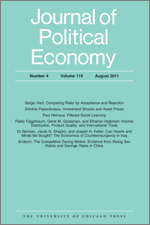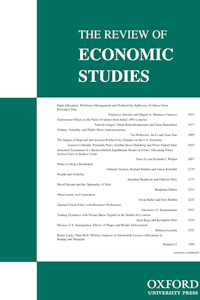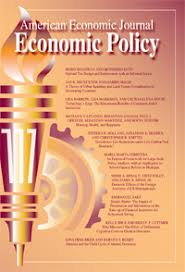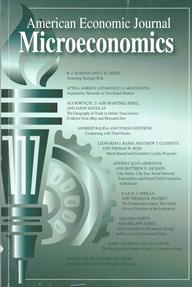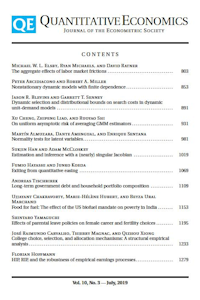
Bhattacharya, D.
Empirical Welfare Analysis for Discrete Choice: Some General Results
Quantitative Economics
Vol. 9(2) pp. 571-615 (2018)
Abstract: This paper develops nonparametric methods for welfare-analysis of economic changes in the common setting of multinomial choice. The results cover (a) simultaneous price-change of multiple alternatives, (b) introduction/elimination of an option, (c) changes in choice-characteristics, and (d) choice among non-exclusive alternatives. In these cases, Marshallian consumer surplus becomes path-dependent, but Hicksian welfare remains well-defined. We demonstrate that under completely unrestricted preference-heterogeneity and income-effects, the distributions of Hicksian welfare are point-identified from structural choice-probabilities in scenarios (a), (b), and only set-identified in (c), (d). Weak-separability restores point-identification in (c). In program-evaluation contexts, our results enable the calculation of compensated-effects, i.e. the program's cash-equivalent and resulting deadweight-loss. They also facilitate theoretically justified cost- benefit comparison of interventions targeting different outcomes, e.g. a tuition-subsidy and a health-product subsidy. Welfare-analyses under endogeneity is briefly discussed. An application to data on choice of fishing-mode illustrates the methods.
Keywords: Multinomial choice, general heterogeneity, income effects, compensating variation, deadweight loss, multiple price change, elimination of alternative, change in characteristics, weak separability, nonexclusive choice, compensated program-effects
JEL Codes: C14, C25, D12, D61, H22
Author links: Debopam Bhattacharya
Publisher's Link: https://doi.org/10.3982/QE931 ![]()

